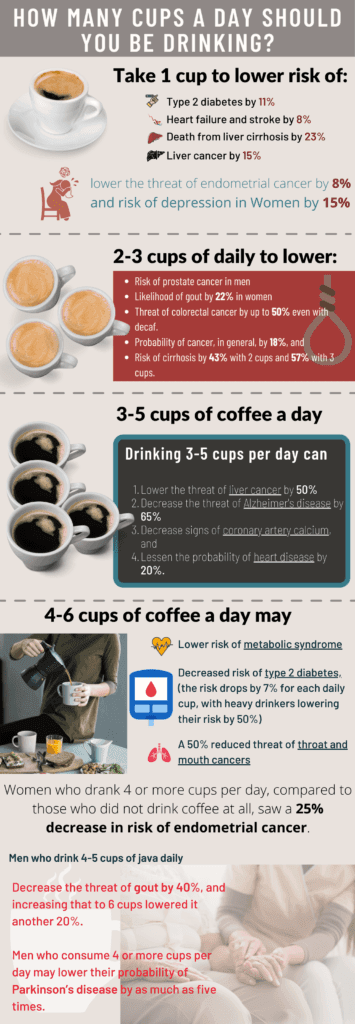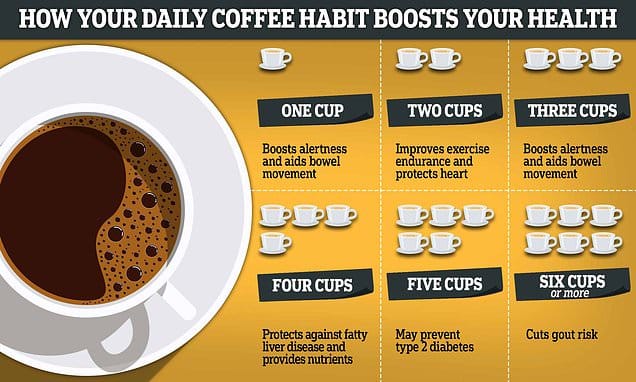
Is it safe to drink multiple cups of coffee during weight loss? This common question lingers in the minds of many individuals embarking on a journey to shed some pounds. Coffee, one of the most consumed beverages worldwide, presents with it a mix of both advocates and skeptics regarding its role in weight loss. Understanding its implications is crucial for anyone who is integrating coffee into their dietary regime.
Discover More About Coffee And Weight Loss
Understanding Coffee and Its Components
Before diving into the effects of coffee on weight loss, it’s essential to comprehend what coffee is made of. Coffee is a brewed drink prepared from roasted coffee beans, the seeds of berries from certain Coffea species. Known for its stimulating effects due to caffeine, coffee also contains a mix of vitamins, minerals, and antioxidants.
Main Components of Coffee
- Caffeine: The most active ingredient in coffee, caffeine is well-known for its stimulant properties. It acts on the brain to create a feeling of alertness and energy. Beyond its stimulating effects, caffeine is a common ingredient in weight loss supplements due to its potential to boost metabolism and improve fat oxidation.
- Antioxidants: Coffee is rich in antioxidants such as chlorogenic acid, which can help reduce inflammation and is thought to play a role in weight management by influencing how the body processes sugar and fat.
- Nutrients: A standard cup of coffee contains trace amounts of several vitamins and minerals, including B vitamins, magnesium, and potassium, which support metabolic functions.
The Role of Coffee in Weight Loss
When considering if it’s safe to drink multiple cups of coffee during weight loss, it’s important to understand how coffee might aid or hinder your efforts.
Metabolic Boost
Caffeine, the chief active ingredient in coffee, can increase the metabolic rate by 3-11%. This slight boost in metabolism may aid in calorie burning and fat loss, especially when combined with a healthy diet and regular exercise.
Appetite Suppression
Some studies suggest caffeine might help suppress hunger, potentially reducing calorie intake throughout the day, contributing positively to weight loss. However, this effect might not last long, and the body can build a tolerance over time.
Increased Physical Performance
Caffeine is known to enhance athletic performance by increasing adrenaline levels and releasing fatty acids from fat tissues. This can come in handy if integrated with a workout routine aimed at weight loss.

Explore Safe Coffee Consumption Tips
Potential Risks of Drinking Multiple Cups of Coffee
While the benefits seem promising, excessive coffee consumption can pose several risks, particularly during a weight loss regimen.
Caffeine Dependence
Regular, heavy consumption of caffeine can lead to dependence. Symptoms of caffeine withdrawal include headaches, fatigue, and irritability, possibly impacting your mood and energy levels, which are crucial during weight loss.
Impact on Sleep
Caffeine can significantly disrupt sleep patterns. Poor sleep can interfere with weight loss since quality rest is important for metabolism regulation and energy balance.
Stress and Anxiety
For some, excessive intake of caffeine can elevate stress hormones, leading to increased anxiety and mood swings. Elevated stress levels can complicate weight loss as stress is known to contribute to weight gain, particularly around the abdominal area.
Coffee Consumption Guidance for Weight Loss
Given the mixed effects of coffee on weight loss, it’s critical to consume it wisely. Here are some guidelines to consider:
Recommended Amount
A moderate coffee consumption—about 1 to 3 cups per day—is generally considered safe for most people. It is crucial to listen to your body and understand how it reacts.
Timing
Drink coffee in the morning or early afternoon to prevent interference with sleep. Avoid consuming caffeine at least 6 hours before bedtime to protect your sleep quality.
Stay Hydrated
Coffee is a diuretic, which means it can lead to dehydration if not balanced with adequate water intake. Remaining hydrated is vital for effective weight loss.
Avoid Calorie Bombs
Coffee drinks filled with sugars, syrups, or cream can significantly increase calorie intake, negating any benefit coffee might have on weight loss. Opt for black coffee or use low-calorie alternatives.

Special Considerations
When integrating coffee into a weight loss plan, consider individual differences and specific health conditions.
Sensitivity to Caffeine
Some individuals are more sensitive to caffeine and might experience negative side effects even from small amounts. Be mindful of your body’s signals and adjust consumption accordingly.
Pre-existing Health Conditions
Those with specific health conditions such as cardiovascular diseases or digestive issues should consult a healthcare provider to navigate any potential adverse effects of caffeine on their condition.
Interactions with Medications
Caffeine can interact with certain medications, altering their effectiveness or causing unwanted side reactions. Ensure to speak with a healthcare provider about any possible interactions.
Examining Research and Evidence
To make a well-informed decision on coffee consumption during weight loss, it’s vital to look at both anecdotes and scientific studies.
Research-backed Benefits
Numerous studies indicate that caffeine can indeed boost metabolism and fat oxidation, although the effects are often modest. A meta-analysis in 2011 concluded that caffeine consumption is associated with weight loss, reduced BMI, and body fat reduction.
Long Term Effects
Longitudinal studies highlight that while caffeine can assist in short-term weight loss, its effects diminish as tolerance develops. Consistency in lifestyle changes, such as a balanced diet and exercise, remains crucial for sustained weight loss.
Personal Anecdotes vs. Scientific Evidence
While some individuals report significant weight loss benefits from drinking coffee, others do not experience these effects. Relying solely on personal testimonies can be misleading; scientific evidence should underpin any health-related decision-making.
Alternatives and Complements to Coffee
For those who are either sensitive to or looking to reduce their caffeine intake, exploring alternatives and complements can be beneficial.
Herbal Teas
Herbal teas, like green tea or oolong tea, can offer metabolism-boosting properties with considerably less caffeine than coffee. Some even have appetite-suppressing qualities.
Supplements
For a caffeine fix without coffee, consider caffeine supplements that are widely available. Remember to proceed with caution and consult healthcare professionals when necessary.
Dietary Changes
Incorporate protein-rich and high-fiber foods to naturally boost metabolism and keep energy levels stable. Combining these dietary changes with moderate coffee consumption can enhance weight loss results.
Conclusion
In conclusion, moderate coffee consumption can be integrated into a weight loss strategy, potentially providing a metabolic boost and enhancing physical performance. However, it’s crucial to be conscious of individual responses and to manage intake to avoid undesirable effects such as sleep disturbances and caffeine dependence.
To safely incorporate coffee in your weight loss plan, pay attention to your body’s unique needs, stay hydrated, and maintain overall dietary balance. Coupling coffee with a well-rounded, consistent lifestyle change will better support long-term weight loss goals. Despite its potential benefits, remember that no singular approach is a panacea for weight loss. Always consider consulting healthcare professionals when making significant changes to your diet or caffeine intake.

